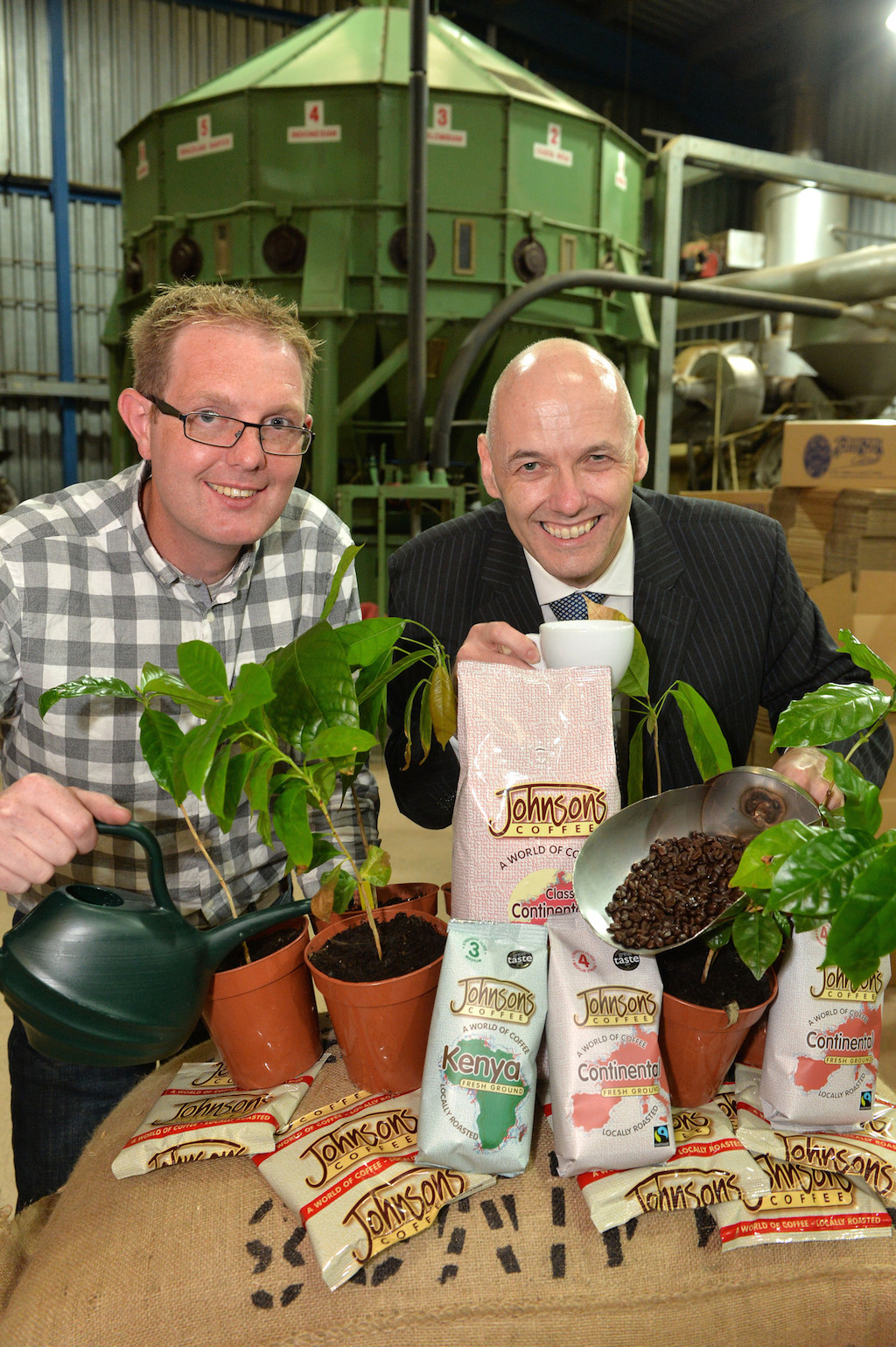The historic Belfast roaster Johnsons Coffee has been supplying the UK with a range of popular and carefully roasted blends for more than a century. They source, import, roast, blend and ship. They train baristas and deal in equipment. Their earliest brand, Irel, is one of only two brands ever granted permission by the Irish government to feature the map of Ireland in its logo, the other one being Paddy’s Irish Whiskey. They’ve likely fulfilled a pretty full range of what’s possible for coffee in Ireland or anywhere else, which leaves them with only one thing left to do — the impossible.
To that end, Johnsons Coffee has embarked upon a project to actually grow Arabica coffee in their chilly northern island home. “Over the years, folk have asked us if we actually grow coffee in addition to blending and roasting,” JC Sales Director Philip Mills told Daily Coffee News in an email. “We have always had a polite laugh as obviously Ireland is not ideal in terms of climate for coffee cultivation.”
But where there’s a will, there’s a way, and to achieve this feat Johnsons partnered with horticulturalist David Pattison, Managing Director of the local garden design firm Plantations. “He was confident that we could grow some trees,” said Mills, whose company then sought the advice of some Colombian coffee-growing connections on matters of soil mineral and acidity levels and climate conditions such as rainfall and temperature.
Nine months ago, Pattison and Team Johnson planted Colombian Medellín arabica seeds in an appropriately balanced soil, watered them daily and kept the temperature consistently between 15-24 degrees Celsius. “We now have 18 plants which are about two feet tall,” reported Mills.
“It is our hope that over the next 30 months that these will continue to grow and bear fruit,” said Mills. “Obviously 18 trees at most will give us about 35kg of coffee and once picked we plan to wash process some and pulp natural process some to compare.”
Johnsons Coffee does not intend to sell these or any Ireland-grown beans commercially. They realize that to repeat the experiment on an industrial scale would be an absurd investment of costly resources. The beans from the currently developing harvest might be auctioned off or reserved for a fundraising tasting event to benefit the two local charities Johnsons has long supported: the SOS Bus, which provides medical assistance to people in distress on Belfast city streets, and Action Cancer, which provides breast screening for women aged 40 and over.
“I guess it is a labor of love,” said Mills of Ireland’s coffee trees. “It is the one area of coffee we have never had any experience of and it will add to our knowledge base.”
Howard Bryman
Howard Bryman is the associate editor of Daily Coffee News by Roast Magazine. He is based in Portland, Oregon.







Comment